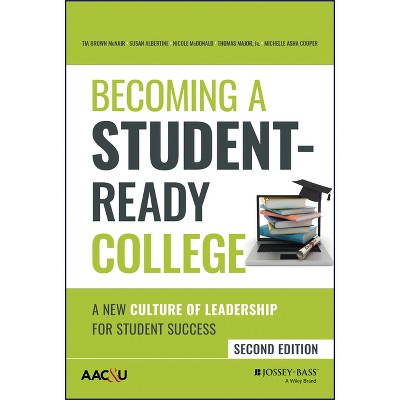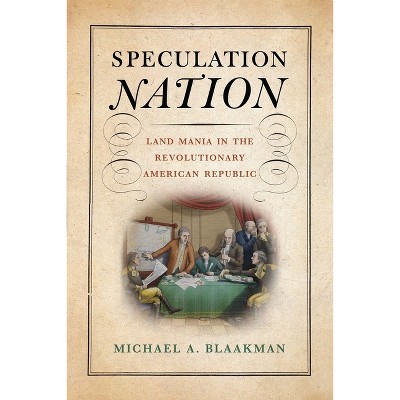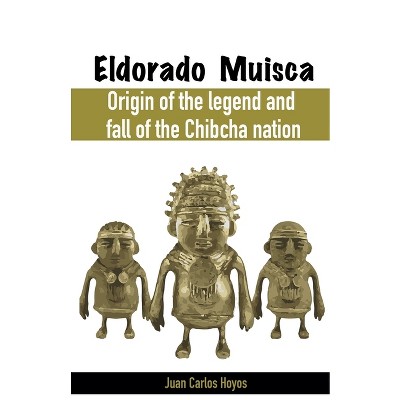Sponsored

Coffee Nation - (Early American Studies) by Michelle Craig McDonald (Hardcover)
$45.00
In Stock
Eligible for registries and wish lists
Sponsored
About this item
Highlights
- A fascinating look at how coffee tied the economic future of the early United States to the wider Atlantic world Coffee is among the most common goods traded and consumed worldwide, and so omnipresent its popularity is often taken for granted.
- About the Author: Michelle Craig McDonald is the Librarian/Director of the Library and Museum at the American Philosophical Society.
- 280 Pages
- History, Americas (North, Central, South, West Indies)
- Series Name: Early American Studies
Description
About the Book
"Coffee is among the most common goods traded and consumed worldwide, and so omnipresent its popularity is often taken for granted. But even everyday habits have a history. When and why coffee become part of North American daily life is at the center of Coffee Nation. Using a wide range of archival, material, and quantitative evidence, Michelle Craig McDonald follows coffee from the slavery-based plantations of the Caribbean and South America, through the balance sheets of Atlantic world merchants, into the coffeehouses, stores, and homes of colonial North Americans, and ultimately to the growing import/ export businesses of the early nineteenth century United States that rebranded this exotic good as an American staple. The result is a sweeping history that explores how coffee shaped the lives of enslaved laborers and farmers, merchants and retailers, consumers and advertisers. Coffee Nation also challenges traditional interpretations of the American Revolution as coffee's spectacular profitability in U.S. markets and popularity on the new nation's tables by the mid-nineteenth century was the antithesis of autonomy. From its beginnings as a colonial commodity in the early eighteenth century, coffee's popularity soared to become a leading global economy by the 1830s. The United States dominated this growth, by importing ever-increasing amounts of the commodity for drinkers at home and developing a lucrative re-export trade to buyers overseas. But while income generated from coffee sales made up an expanding portion of U.S. trade revenue, the market always depended on reliable access to a commodity that the nation could not grow for itself. By any measure, the coffee industry was a financial success story, but one that runs counter to the dominant narrative of national independence. Distribution, not production, lay at the heart of North America's coffee business, and its profitability and expansion relied on securing and maintaining ties first with the Caribbean and then Latin America"--Book Synopsis
A fascinating look at how coffee tied the economic future of the early United States to the wider Atlantic world
Coffee is among the most common goods traded and consumed worldwide, and so omnipresent its popularity is often taken for granted. But even everyday habits have a history. When and why coffee become part of North American daily life is at the center of Coffee Nation. Using a wide range of archival, quantitative, and material evidence, Michelle Craig McDonald follows coffee from the slavery-based plantations of the Caribbean and South America, through the balance sheets of Atlantic world merchants, into the coffeehouses, stores, and homes of colonial North Americans, and ultimately to the growing import/export businesses of the early nineteenth-century United States that rebranded this exotic good as an American staple. The result is a sweeping history that explores how coffee shaped the lives of enslaved laborers and farmers, merchants and retailers, consumers and advertisers. Coffee Nation also challenges traditional interpretations of the American Revolution, as coffee's spectacular profitability in US markets and popularity on the new nation's tables by the mid-nineteenth century was the antithesis of independence. From its beginnings as a colonial commodity in the early eighteenth century, coffee's popularity soared to become a leading global economy by the 1830s. The United States dominated this growth, by importing ever-increasing amounts of the commodity for drinkers at home and developing a lucrative re-export trade to buyers overseas. But while income generated from coffee sales made up an expanding portion of US trade revenue, the market always depended on reliable access to a commodity that the nation could not grow for itself. By any measure, the coffee industry was a financial success story, but one that runs counter to the dominant narrative of national autonomy. Distribution, not production, lay at the heart of North America's coffee business, and its profitability and expansion relied on securing and maintaining ties first with the Caribbean and then Latin America.Review Quotes
"Based on a remarkable grasp of archival and printed materials, and written with engaging verve, Coffee Nation explains how coffee became an inescapable feature of North American private and social life by the years of the early republic. But it also provides a fuller understanding of the emergence of North American identity. Coffee Nation is an invaluable addition to our understanding of the rise of global commodities and, more broadly, is an example of cultural history at its very best."-- "James Walvin, author of A World Transformed: Slavery in the Americas and the Origins of Global Power"
"Using a compelling array of material, archival, and quantitative evidence, Coffee Nation traces the important, but until now untold, history of the coffee trade in early America. In an accessible, often witty narrative, Michelle Craig McDonald deftly traces the history of the production, distribution, and consumption of this popular, profitable commodity that Americans decided early on they could not live without--even if they had to depend on other nations to get it. Coffee Nation will be a must-read in commodities history."-- "Zara Anishanslin, author of Portrait of a Woman in Silk: Hidden Histories of the British Atlantic World"
"Why are Americans a nation of coffee rather than tea drinkers? In this meticulously researched account, Michelle Craig McDonald tells the much neglected story of the early history of coffee before the rise of the great producers in Central and South America. Coffee Nation extends Atlantic history beyond the American Revolutionary War. It is a major contribution to the history of commodities and to the economic history of the United States."-- "Andrew Jackson O'Shaughnessy, author of The Men Who Lost America: British Leadership, the American Revolution, and the Fate of the Empire"
About the Author
Michelle Craig McDonald is the Librarian/Director of the Library and Museum at the American Philosophical Society.Dimensions (Overall): 9.0 Inches (H) x 6.0 Inches (W) x .75 Inches (D)
Weight: 1.17 Pounds
Suggested Age: 22 Years and Up
Series Title: Early American Studies
Sub-Genre: Americas (North, Central, South, West Indies)
Genre: History
Number of Pages: 280
Publisher: University of Pennsylvania Press
Format: Hardcover
Author: Michelle Craig McDonald
Language: English
Street Date: May 27, 2025
TCIN: 92866329
UPC: 9781512827552
Item Number (DPCI): 247-42-5289
Origin: Made in the USA or Imported
If the item details aren’t accurate or complete, we want to know about it.
Shipping details
Estimated ship dimensions: 0.75 inches length x 6 inches width x 9 inches height
Estimated ship weight: 1.17 pounds
We regret that this item cannot be shipped to PO Boxes.
This item cannot be shipped to the following locations: American Samoa (see also separate entry under AS), Guam (see also separate entry under GU), Northern Mariana Islands, Puerto Rico (see also separate entry under PR), United States Minor Outlying Islands, Virgin Islands, U.S., APO/FPO
Return details
This item can be returned to any Target store or Target.com.
This item must be returned within 90 days of the date it was purchased in store, shipped, delivered by a Shipt shopper, or made ready for pickup.
See the return policy for complete information.
Trending Non-Fiction

$15.68
Buy 2, get 1 free select books
4.8 out of 5 stars with 180 ratings

Highly rated
$19.31
was $20.98 New lower price
Buy 2, get 1 free select books
4.1 out of 5 stars with 53 ratings

$19.58
MSRP $29.00
Buy 2, get 1 free select books
4.7 out of 5 stars with 11 ratings

$4.59
MSRP $7.99
Buy 2, get 1 free select books
4.8 out of 5 stars with 116 ratings

$6.20
MSRP $10.95
Buy 2, get 1 free select books
4.8 out of 5 stars with 32 ratings

$7.09
MSRP $9.99
Buy 2, get 1 free select books
4.9 out of 5 stars with 45 ratings





